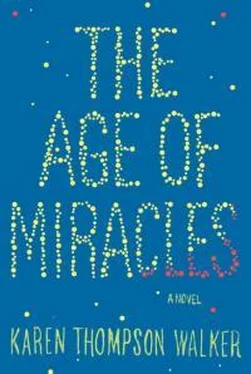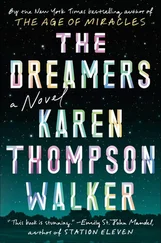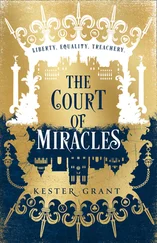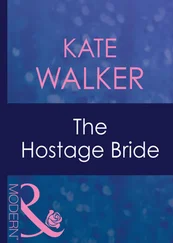“Come on,” he said. His palm on my wrist felt electric. Even then I noticed it, the sweaty warmth of his hand on my arm.
We burst outside together.
“Come back here,” said Mrs. Pinsky, but no one was listening. She said it again, this time shouting it through the bullhorn. Not a single kid turned her way. We were running in every direction, most of us rushing up the grassy hill behind campus.
Within a few seconds, it was as dark as dusk outside and growing darker. The sky turned a brackish evening blue. An orange glow ringed the whole horizon.
Seth and I threw ourselves on the grass, sensing it was safer to lie low.
“This might be it,” he said. I thought I heard a thrill in his voice.
All around us, kids were screaming. I heard someone sobbing in the dark. Camera phones were clicking and flickering in the blackness. We could see the stars in the sky.
On the road beside campus, dozens of cars had stopped. Drivers stood in the streets, car doors flung open like wings, headlights flipped on in the dark. Every eye was on the sky. A cool night wind was blowing across the grass.
At the bottom of the hill, Mr. Jensen was yelling from the doorway of the science lab. He was waving his hand. I could not hear him over the screams of the crowd, but I could see that he was frantic. If even Mr. Jensen was panicked, what chance was there for the rest of us to stay calm?
Seth reached for my hand, our fingers interlaced. I’d never held hands with a boy this way. I almost couldn’t breathe.
My cell phone buzzed in my pocket. I knew it was my mother. I didn’t answer.
“What if this is how we die?” whispered Seth. He sounded serious. He did not seem afraid.
We all grew quieter as the seconds passed, hushed by the darkness and the chill in the air. I became aware that dozens of dogs were barking, howling, from their yards. Minutes passed. The temperature continued to drop.
A vague prayer slipped out of my mouth: Please, please let us be okay .
We were, on that day, no different from the ancients, terrified of our own big sky.
We know now that the darkness lasted four minutes and twenty-seven seconds, but it seemed to stretch much longer. Time felt loose in those first few days. If it weren’t for the records—hundreds of people filmed the event—I’d still swear that at least an hour passed before the first glint of light reappeared in the sky.
“Look,” I heard Seth saying. “Look. Look.”
A bleed of brightness was spreading directly overhead, a sliver of sun returned to us, as if by miracle. Now we could see the outline of the whole thing, a thin circle of light with a blinding bulge on one side, like a diamond on a ring.
I saw Mr. Jensen hurrying through the crowd. When he reached us, we finally heard what he’d been shouting.
“Listen to me,” he said. “This is just an eclipse. It’s harmless. It’s just the moon’s shadow passing in front of the sun.”
As we would learn in the coming hours, Mr. Jensen was right: A total solar eclipse had been anticipated for the middle of the Pacific Ocean. It was to be visible only from the decks of passing ships and from a handful of thinly populated islands. But the slowing had shifted the coordinates of all predicted eclipses—they used to have them all figured out, every future eclipse charted to the minute and the decade. This one had caught us by surprise. It was seen from a thick swath of the western United States.
Relief passed through my whole body. We were fine. And there I was, lying on a hill with Seth Moreno.
Seth seemed disappointed by the news.
“That’s it?” he said. “It was just an eclipse?”
We remained on the hill together, watching the sun reemerge. We squinted side by side, our backs on the grass. I was so close to him I could see the hairs on his forearm.
“Do you ever wish you could be a hero?” he said.
“What do you mean?” I said.
“I want to save someone’s life someday.”
I thought of his mother. My father had explained to me once how cancer worked, how it almost never gave up, how you had to kill every single cell of it. And you were never completely sure that you had won. It could always come back, and mostly, it did come back.
“I might want to be a doctor,” I offered. This was only half true. I didn’t really know then if I could do what my father did. I didn’t know then if I could stomach all that blood and sadness.
“Whenever I’m in a bank,” said Seth, “I kind of hope that a robber will come running in with a gun and that I’ll be the one who tackles him and saves everyone else.”
From a distance, it had seemed that Seth’s mother was not going to die of her disease. The year before, she was still bringing brownies for bake sales and raising money for Mrs. Sanderson’s Christmas gift. She’d remained so active that it had looked like her cancer would be merely a trait she lived with, like being overweight or going gray. But I hadn’t seen her in a while.
The color was returning to the sky, slowly but surely, the way a person’s face recovers after fainting.
“I’m going to be an Army Ranger when I’m older,” he said. “That’s the most elite branch of the military.”
“That’s cool,” I said.
People were climbing back into their cars. Horns were honking. Dogs continued to bark. Some kids were heading back to their classrooms. Others were drifting away, off campus and into the world, too jittery to obey any rules or routine.
Seth and I stayed where we were on the hill. A silence stretched between us, but it was an easy silence. We were alike, I thought, the quiet, thinking kind.
I watched him watching the sky. A frail-looking cirrus was gliding in from the west, the first and only cloud of the day. I wanted to say something important and true.
“I’m really sorry about your mom,” I said.
“What?” he said. He turned toward me. He looked surprised.
It was suddenly hard to look him in the eye. So I didn’t. Instead, I looked back up at the sky.
“I’m just sorry that she’s sick,” I said. “That must be really hard.”
Seth sat up and brushed his palms on the front of his jeans.
“What the hell do you know about it?” he said.
He was standing now. The sun was nearly full again, and it was too bright to look up; it was hard to see his face in the light.
“You don’t know anything about my mom,” he said. His voice cracked. “Don’t talk about her. Don’t ever talk about my mom. Never talk about her again.”
I felt each word sting a separate sting.
I tried to apologize, but Seth was already walking away, hurrying off campus and out into the world. I watched him cross the street, looking angry and reckless, dodging traffic as he walked, moving farther and farther away from me.
By then the sky had turned to its afternoon self, its boldest, bluest blue. I sat up and discovered that I was the only one left on the hill.
I began to walk slowly back toward math. I passed Michaela on the way. She was heading toward the campus gate with a group of older kids I didn’t know.
“We’re going to the beach,” she said as she passed me.
“What about next period?” I said. I regretted these words as soon as they left my mouth.
Michaela laughed. “Oh, God, Julia,” she said. “Have you ever done one bad thing in your life?”
That afternoon soccer practice was canceled. My mother picked me up from school. She was furious.
“Why didn’t you answer your phone?”
I climbed into the passenger side of the car and slammed the door shut behind me, hushing in an instant the giddy voices ringing from the bus lines.
“It was just an eclipse,” I said. I clicked my seat belt and leaned back as my mother pulled away from the curb.
Читать дальше












